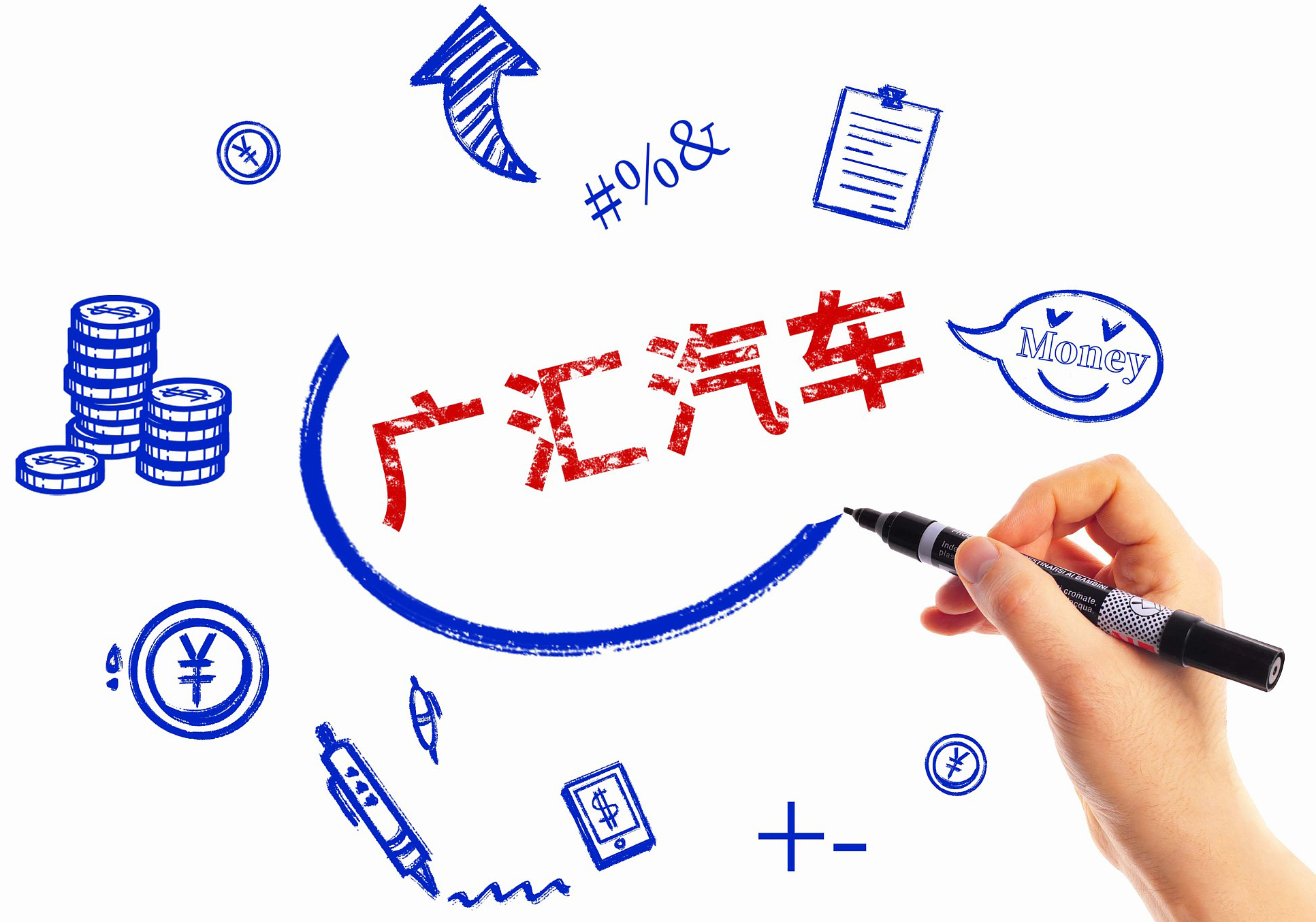
In June last year, Pangda Motor was officially delisted from the market. As a former leading dealer company, the demise of Pangda Group has revealed the common survival crisis of traditional dealers.
Change always comes faster than expected.
In just one year, another dealer giant, China Grand Automobile, has once again attracted attention and discussion in the industry due to serious and abnormal stock price fluctuations.
Today, the four words "on the verge of delisting" are hanging high above China Grand Automobile's head, but no one can predict when this moment will arrive.

But one thing is certain, China Grand Automobile's current situation is indeed not optimistic. Public information shows that as of the close of trading on June 28, China Grand Automobile’s stock price closed at 0.69 yuan per share, with a total market value of 5.682 billion yuan. It is worth noting that this is already the seventh consecutive trading day that the stock price of China Grand Automobile has been below 1 yuan.
According to the provisions of the "Shanghai Stock Exchange Stock Listing Rules", for a listed company that only issues A shares on the Shanghai Stock Exchange, if the daily stock closing price of the company's stock is lower than RMB 1 yuan for 20 consecutive trading days, then The company's shares may be terminated from trading by the Shanghai Stock Exchange.
Previously, China Grand Automobile suddenly fell to the limit on June 3. The company disclosed the plan of the controlling shareholder and some senior executives to increase their shareholdings that night. As a shareholder of the company, China Grand Automobile Group planned to increase its holdings by no less than 50 million yuan. If the amount exceeds 100 million yuan, the remaining executives plan to increase their holdings by no less than 1.3 million yuan and no more than 2.3 million yuan.
However, this move had little effect, and did not play a role in stabilizing the stock price. Instead, it continued to fall and nearly halved, until it fell below the 1 yuan red line for the first time on June 20. This time, it was not only China Grand Automobile that was panicked, but also 100,000 yuan. Multiple investors.
Income loss, Guanghui’s hearts are divided
The stock price fluctuations are not unfounded, and losses are an important reason why China Grand Automobile is frustrated in the capital market.
"Cheyitiao" consulted financial data and learned that in the first quarter of 2024, Guanghui Automobile's operating income was 27.79 billion, a year-on-year decrease of 11.49%, net profit was 70.9405 million, a year-on-year decrease of 86.61%, and the net cash flow from operating activities was negative.
Judging from the financial performance of the past six years, China Grand Automobile's operating income was more than 100 billion between 2019 and 2023. The highest point was in 2019, with revenue of 170.456 billion, and the lowest point was in 2022, with revenue of 133.544 billion. But in this year, China Grand Automobile's net profit lost 2.669 billion, until it rebounded in 2023, reaching 392 million. s level.
However, if the performance in the first quarter of 2024 is estimated, it may be difficult for China Grand Automobile's year-end bills in 2024 to be the same as last year, which means that there is a possibility of further decline.
When a company's profitability fluctuates, it will not only directly affect the judgment of the capital market, but will also be quickly transmitted to the grassroots of the company. Employees of China Grand Automobile feel the most about this. Due to widespread wage arrears, China Grand Automobile has been suspended by some employees. Go to online social platforms for “public executions”.
According to employees of China Grand Automobile, the company has been in arrears with wages every month since last year, but the arrears were relatively short at that time and generally did not exceed the end of the month. But this year, the delay is getting longer and longer. April wages were not paid until mid-to-late June, and May wages are still far away, which is equivalent to only three months of wages in half a year.
Not only that, CGA also uses some "techniques" in its salary payment standards. For example, the wages of front-line workers (generally referring to sales positions) are paid first, while the wages of non-front-line workers (generally referred to administrative positions) are delayed. This double-standard behavior directly triggers the dissatisfaction of employees - "If you don't pay, then withdraw, and the second-line people are not person?"
For another example, wages are not always paid in full. Guanghui will set various KPIs that cannot be achieved and find ways to deduct employees' wages, and some even give them a 40% or 60% discount.
In addition, some employees revealed: "China Grand Automobile transferred employees' social security provident funds in order to defraud bank loan interest rates, which forced us to pay income tax. When filing the income tax refund in March, the tax bureau discovered the problem and contacted the legal person. The legal person said There is no such thing and the employees are not allowed to receive tax refunds. "In this employee's view, China Grand Automobile violated the legitimate rights and interests of employees and defrauded bank interest, which was very unfair.
In fact, China Grand Automobile ranked first among major dealer groups in total passenger car sales last year, and ranked 103rd among Fortune China's 500 companies in 2023. However, this did not have any positive impact. On the contrary, it further aroused the dissatisfaction of employees: "You talk about the Fortune 500 companies every day, and now you can't even pay your salary?" Some employees even said bluntly: They are very desperate and are ready to run away. On the way.
From the dispersion of people's hearts to the bottoming of stock prices, the difficulties faced by China Grand Automobile today are actually not traceable. In addition to the internal problems of the company's own operation and management, the harsh external market environment has also put a strain on dealers including China Grand Automobile. Indiscriminate attack, this is the real root cause.
In the price war, dealers become part of the battle between car companies
Among the many dealer groups, China Grand Automobile is the first to be affected. Because of its special industry status, it has attracted more attention in the industry.
Looking back on the past development of China Grand Automobile, this company actually acquired the A-share market via Mero Pharmaceuticals in 2015, and then carried out large-scale mergers and acquisitions between 2016 and 2018, including Baoxin Automobile, Pengfeng Group, Zunrong Group, Zhongguo Baohong, etc. have all become the possessions of China Grand Automobile.
Especially Baoxin Automobile, which itself mainly operates mid-to-high-end and luxury brands, is also one of the largest dealers of BMW and Jaguar Land Rover in the country. After being acquired by China Grand Automobile, it also directly helped China Grand Automobile become a prominent player in the industry. A well-known luxury car dealership and service group.
Behind success and fame, it is inseparable from the blessing of the times.
As far as the traditional dealer model is concerned, core sectors such as new car sales, maintenance services and commission agencies are important components of the income structure, among which new car sales are the main “money-attracting” force. In the past few years, among the store brands with the highest revenue of China Grand Auto, most of them are luxury brands such as Mercedes-Benz, BMW, Audi and Jaguar Land Rover. Compared with now, at that time, luxury car brands still had relatively high bargaining power in the Chinese market. Consumers were willing to spend more money to pay, and dealers naturally made a lot of money. China Grand Automobile could also easily " It increases both revenue and profit.”
But today is different from the past. Under China's rapidly taking off new energy trend, both the pricing system and sales model of automobile products have undergone tremendous changes. In the process, traditional dealers who are closely related to traditional car companies have also become It is a part of the play in the new energy transformation process.
As one of the listed dealer groups in China with the most intensive layout, as of the end of 2023, China Grand Automobile still has 735 outlets, including as many as 245 ultra-luxury and luxury brand outlets. Although in order to cope with the new energy transformation, China Grand Automobile has established cooperative relationships with multiple new energy brands such as Cyrus, Avita, and Xiaopeng in 2023, the real source of profit is actually still mainly focused on the traditional automobile business.
At present, the market share of fuel vehicles is declining rapidly, and it can only be equal to that of new energy vehicles. For dealers, whether the speed of rebuilding the new energy sales network can outpace the decline of fuel vehicles is an important criterion in determining whether they can overcome the difficulties of transformation.
But the reality does not seem optimistic. In the Chinese auto market where "volume" is the main theme, the price war has never meant a "ceasefire", but has intensified. Nowadays, under the attack of the strong low-price strategy of new energy car companies, the traditional car camp has become a red sea, ranging from 30% off to 20% off, to the 170,000 BMW i3, to the fractured Mercedes-Benz C-Class. Even if traditional dealers can compete on price in exchange for sales, the result is an embarrassing situation of "increasing revenue without increasing profits."
What’s more, even increasing income is difficult to achieve.
Not long ago, Porsche dealers collectively forced the German headquarters of Porsche. The conflict between the two parties is that the car company forced dealers to press the dealers to whitewash sales. However, Porsche has gradually lost the trust of Chinese users since last year, coupled with the lack of trust in pure electric vehicles. The Taycan's positioning was inaccurate, the new car's launch failed, and no one cared about the terminal market, which further destroyed the confidence of dealers. Under the huge inventory pressure, it was a helpless move for Porsche dealers to rebel.
At the same time, new energy vehicles are entering a period of change along with the ever-expanding direct sales model. The more efficient and flexible service system has also had a certain impact on the traditional distribution model based on "agency". However, traditional dealers cannot afford to lose because of their big tail, and the strategies they can adopt can only be limited to tactics, such as selling goods through live broadcasts and gaining attention through operating new media. It is difficult to achieve fundamental model innovation.
In the eyes of the capital market, most of the criteria for judging companies only look at two aspects, one is short-term hot spots, and the other is long-term performance. For today's traditional dealers, they cannot meet the standards and standards of the capital market from any point of view. It is expected that the same will be true for China Grand Automobile. It is conceivable that if the stock price continues to be below the bottom line of one yuan, then Guanghui's delisting will become a prophecy.
Although the situation of traditional dealers is deplorable, the market is still moving forward. It can only be said that a grain of sand of the times is like a huge mountain falling on any individual. From the huge to the vast, it is difficult to be alone.
(The original title is "The largest car dealer is on the verge of delisting. Employees: Run away after April wages are paid!")